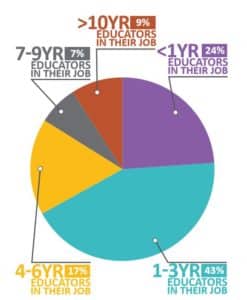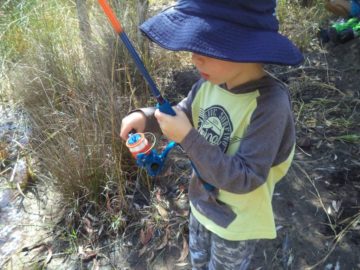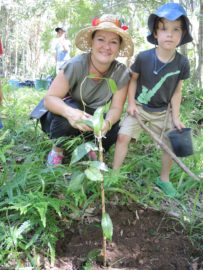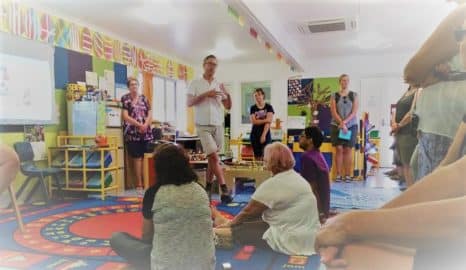Article written by Wendy Shepherd
There is nothing nicer than wearing slippers and a dressing gown, you feel very comfortable, relaxed and ready to curl up with a good book or to watch TV. You don’t have to worry about your hair or how you look and you can take your time sipping a cup of coffee or tea, put you brain on hold…ah the serenity!
Unfortunately for some of us we forget to slip out of this laid back mode when we shuffle off to work, often still with our thermal cup in hand. We sometimes forget to take off the slippers and dressing gown, brush our hair, for who cares what we look like? Who would notice? No point in getting dressed. The children wouldn’t notice (but actually they do), our workmates wouldn’t notice because they have on their own slippers and gowns.
The metaphor or the image of slippers and dressing gown is one we can all relate to and if we were really honest, perhaps there is a day or two that we do (metaphorically) keep them on at work. If perhaps we did not turn up to work at one stage in such attire, but we do now, it is probably because other people have turned up in theirs. The workplace is a place to hang out with like minded people, isn’t it? When in Rome …the saying goes and if you can’t beat them, join them!
Well what does this talk of slippers and dressing gowns have to do with you? I am using this image to draw our attention to our day to day performance, feelings and attitudes about our work in whatever role you are in. My feeling is, there are days when we all just ‘shuffle about’, just doing our job and no more and no less, and we are not necessarily ‘truly present in the moment’ with our creativity on the back burner along with our passion and commitment. We are languishing, not flourishing. This of course has an effect on those around us, our colleagues, children and staff. Of course apologies to those who are truly present every day with your creativity, passion and commitment on fire!
But just in case, for some of us who do admit to wearing the slippers, here are some thoughts about how to ‘re-cognise’ what it is we are employed to do and perhaps fan the flames of passion and commitment to ensure the best interests of children remain the central focus. When we ensure the children and their best interests are paramount and this ideal, remains our goal, by default the best interests of staff are also upheld.
Let us begin by reflecting on what brought us to our jobs in the first place. Getting a job in an early childhood programme or a before and after school programme is relatively easy, and that is well known, because, historically, there is a high turnover of staff in both sectors. It has been well researched that poor pay and conditions are responsible for the high turnover.
The remuneration for the job, (we soon discover), does not reflect the level of commitment and responsibility that is essentially the cornerstone of the role. Still, people are initially attracted to this sector, unaware of the huge responsibilities, because, the job is easy to get and playing with children all day is easy… isn’t it?
Looking at the latest information from the Productivity Commission Report on Government Services they have determined how much time educators spend in a long day care job in New South Wales. While this information relates to long day programs in New South Wales, it might not be too far from the statistics for other states and territories.
The Commission found that 24% of staff have been in their job for less than a year, 43%, 1-3 years – that is 67% of educators in NSW LDC have worked at a service for under 3 years. That is much more than half! Imagine the impact of this on programs and importantly on children? Only 17% have worked 4-6 years, 7% 7-9 years, and 9% more than 10 years.

Take a moment to reflect. What brought you to find employment working within the sector, how long have you been working? Have you been in the same role? What has kept you working in the sector?
If we conducted a survey in your programmes what might we discover? If the statistics are similar then there is something to think about, if your statistics are better then that is something to celebrate! People who seek work in these spaces do so for many reasons and it is certainly not the pay. Some of the reasons for employment in an early childhood program or before or after school care, could include as an example, the hours. The hours are good for students while studying full or part time. Sometimes seeking employment in the sector is as a secondary income for a household where the children have grown and are now off to school. The job may be viewed as a transition space which may allow time for returning to study before taking up a new career.
Most usually it is not a career path choice, as it is rare for promotion even with a new qualification. Many staff
have to leave and seek a position elsewhere to work at the level of their new qualification. This continual turnover of staff has a huge impact on the staff left standing, on the administration as the recruitment process is costly and time consuming. The impact on the programme is also noticeable as there is a lack of continuity of staffing for both children and families and the programme runs in a holding pattern. There is no-one who really knows these children, no-one who knows about them or their family or their pets or their struggles and achievements.
This is where children’s rights are not upheld, when programmes have to juggle casual staff and constant changes in personnel. Children need familiar ‘significant others’ in their lives as they really have no choice about being in various programmes each day. It is an aspect of their family life that they get to spend so many hours in out of home settings. As the adults in these programmes it is our responsibility to honour children’s rights, by ensuring we are the very best we can be when we are with them. It is important that we work collaboratively with their families so that they are engaged with us in managing the balance of work and family, and not simply viewing the programme as a service.
We actually provide a complementary role as an extended family, a community hub, for families which supports them in caring for and raising their children. When we calculate the hours children are in out of home care, they are often with us longer than they are at school. That is a significant amount of time and a time of huge potential if we recognize the possibilities there are for engaging children in meaningful, authentic experiences, where they are required to think and problem solve, rather than just providing them with busy work and activities that lack any purpose other than to entertain.
While the following is information relating to the American experience, we could takes some points and consider what happens in our programmes. Elizabeth Gilbert from the University of Massachusetts (2015) in a recent research project reviewed a 1995 research project which found that children in lower socio economic families were exposed to fewer than 30 million words – compared to other children, leaving a significant “word gap’’ – which of course impacts on their later educational opportunities.
Gilbert, in the current research project is looking at the increase in the number of children in formal care arrangements, with staff who mostly have very little else other than their high school diploma. Gilbert found the staff in the out of home care settings had low literacy and numeracy levels and as a consequence there was a mirroring of disadvantage. Children, she found, are not exposed to staff who have high maths and literacy levels, which we would all agree is not ideal.
Gilbert developed a program called Learn at Work, where staff can upgrade their qualifications in an ongoing, in-house professional development programme. The idea is to reduce the knowledge gap. This has proved to be a great success. The National Association for the Education of Young Children are also working towards upgrading the skills of staff who work in early childhood and OOSH programmes, this program is called “Power to the Profession”.
The lesson for us is this, I think we can appreciate the Australian Government’s requirement for all staff who work with young children to have at least a Certificate 3 and for all staff to work within the regulatory requirements to achieve high quality programmes for our children and develop positive relationships with their families. Until just recently, the Australian Government provided funding to reduce the costs of professional development programs. Now that funding has stopped and those organizations have to charge the real cost of the professional development programmes.
There is also a lot we can achieve through engaging consistently in ongoing professional development programmes that are run in-house or externally, to be engaged in action research projects about our work, for example, how do we support children’s numeracy and literacy development? What do we know of the school’s expectations? Could there be some collaboration with the teachers about what the expectations are?
How do we recognize the possibilities for the day to day experiences we plan for children? What is our scientific, and technical knowledge? What do we know about the visual and performing arts? What do we know about the social issues that impact on young children?
We all need to be well informed, know where to source the information, engage in ongoing learning. All of us can, in just 30 seconds, take our conversations with a child to a higher level, by really being present in the moment and taking the time to consider adding another layer of information that will enhance the child’s knowledge and understanding….in 30 seconds. Imagine how many opportunities in a day that gives us.
I often hear from staff in all areas and programme types, that families do not appreciate the work that we do. I am sure they do, in their own way, and they must appreciate having peace of mind about their children. However families do not necessarily express their appreciation in the ways we want and desire. Consider the trust they demonstrate by bringing their children to our programmes. We have to just stop seeking external acknowledgement, and get better at acknowledging the work of our colleagues and the work that we do, more formally and more frequently. Let us ask the questions:
What skills, strengths and talents do you have?
How could you draw on these talents in your current role?
What are the challenges in your role?
What might you do to overcome these challenges?
What are our contributions? Are they worthy of praise by others and of self-praise?
How can we create a learning community?
It all starts in the morning, the minute you decide to slip on your ‘cranky pants or your happy pants’ (Bruce Sullivan 2014). The day to day pleasant engagement of staff with each other, the children and families is important to nurture as the atmosphere created by staff is noticed by the children and families. Andrew Duvel (2015) proposes, “people are not fully present until they have spoken”.
Have you ever arrived in the morning without speaking a word? Ever spent a day without really engaging in a meaningful conversation with your colleagues apart from merely passing on messages or instructions? Remember every single one of us is an ambassador for the organization, every greeting, every engagement should be positive, enthusiastic and respectful. Children are very insightful about the emotional states of the adults around them.
This mental state or phenomenon of Perezhivanie1 is reflected in your way of being, your body language and your engagements with others. Natalie Rogers describes a connection between our life force – our inner core or soul and the essence of all beings. Vygotsky (1982) proposed Perezhivanie as a dynamic unit of consciousness. Children have the right to ‘be’ within an environment of wellbeing and positivity and connectedness. If we were truly honest it is a right for us all. Our emotional health and wellbeing is fast becoming an important aspect of employee’s rights and the employer’s responsibility, but first and foremost, the responsibility rests within us. Louise Porter (2016) has just written a book about emotional intelligence and how emotional literacy can enrich your life, she states:
“Aside from our personal relationships, one of the main venues where we need to exercise emotional intelligence is in the workplace. This will enable us to harness each person’s desire to make meaningful contributions to a purpose that is bigger than themselves, to matter to others, to make a difference, and to perform at their best. To do all this they need resources, personal and collective efficacy, collegial support and leadership.”
Porter continues…A successful workplace culture is open to the challenges the team faces; is willing to give time and support to team members to resolve these; has strong relationships with the team leader and among the team members; involves everyone in making decisions and appreciates individual’s efforts. It recognizes that emotions that are well harnessed can inform wise decisions and nourish workers. This respect carries over into respectful relationships with the children and families.
How do we acknowledge the work of our colleagues?
How do we take care of our own emotional state and wellbeing in the workplace? What fills us up? What drains us?
How do we manage conflict with children, families and each other?
How often do we congratulate ourselves on a job well done?
What do we celebrate in the workplace?
What strategies might we consider to do this more regularly and perhaps share with our community?
Will you feel empowered to contribute to the flourishing learning thinking environment, to be the very best you can be and avoid shuffling around in your slippers and dressing gown?
Final Reflective task
What have you read that has caught your imagination?
What have you heard that has challenged your thinking?
What goal will you set for yourself for Monday?
What goals might you set to achieve in a month’s time?
I hope one of your goals is to take off your slippers and dressing gown and never wear them to work!
1.Perezhivanie is a Russian word, usually translated as “a lived experience,”
Image of slippers provided by Dr Red Ruby Scarlet








[…] undervaluing of the profession is feeding into the attitudes and performance of many working in the field. It influences school leavers and job seekers considering a career in […]